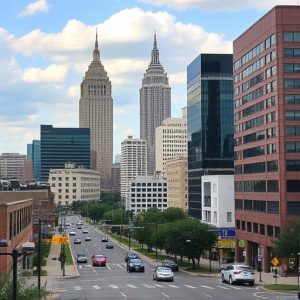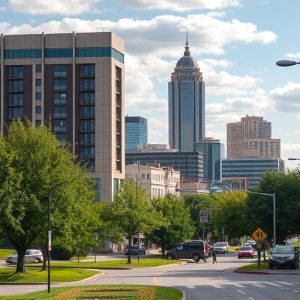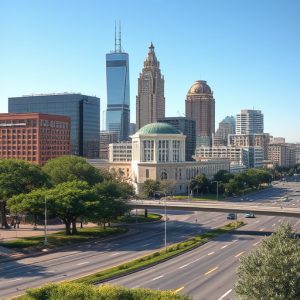Austin Resident’s Guide: Accessing Local Hubs for Support and Enrichment
Austin, Texas, is a vibrant city that offers a comprehensive support system for its residents, enco…….

Austin, Texas, is a vibrant city that offers a comprehensive support system for its residents, encompassing essential services like job support, healthcare, and education. The community hubs play a crucial role in reinforcing the city's social and cultural fabric by providing resources that cater to a wide demographic. Austin Public Library extends access to knowledge through digital offerings, while the Parks and Recreation Department enriches lives with fitness programs and community events. The collaborative effort between public and private sectors is evident in initiatives addressing issues such as food insecurity and support for artistic endeavors. Austin's social service organizations provide robust support for financial aid, housing, and healthcare, making it easier for residents to navigate these resources. The City of Austin offers a centralized resource on its official website, and local community centers like those in East Austin and North Austin offer guidance to residents. Healthcare is a priority in Austin, with advanced medical facilities offering top-tier patient care and comprehensive mental health services. The city's commitment to lifelong learning is exemplified by its extensive library network and higher education institutions that offer workshops, lectures, and courses for personal enrichment and professional development. Recreational activities and cultural experiences are abundant in Austin, with places like Zilker Metropolitan Park providing spaces for relaxation and events like SXSW showcasing the city's dynamic culture. Cultural institutions such as The Blanton Museum of Art and the Mexic-Arte Museum celebrate Austin's diverse heritage through art exhibitions and performances, contributing to the overall enrichment and well-being of the community.
discover a wealth of community resources and services in Austin, TX, designed to enhance the quality of life for its residents. This article delves into the multifaceted support system available, from neighborhood assistance programs to comprehensive health and wellness facilities. Austin’s vibrant social service organizations, exemplary medical care providers, and mental health support networks are integral to the community’s well-being. Lifelong learning is encouraged through an array of educational initiatives and libraries, while recreational activities in Austin’s parks, cultural centers, and event spaces offer enriching experiences for all ages. Residents of Austin, TX, have access to a rich tapestry of services that cater to diverse needs, making it a supportive and dynamic place to live.
- Exploring Austin, TX's Community Hubs: A Comprehensive Guide to Local Resources and Services
- Neighborhood Support in Austin: Navigating Austin's Social Service Organizations
- Health and Wellness in the Heart of Texas: Austin's Medical and Mental Health Resources
- Lifelong Learning Opportunities: Austin's Educational Programs and Libraries for Residents
- Enriching Recreational Activities: Austin's Parks, Cultural Centers, and Community Events
Exploring Austin, TX's Community Hubs: A Comprehensive Guide to Local Resources and Services
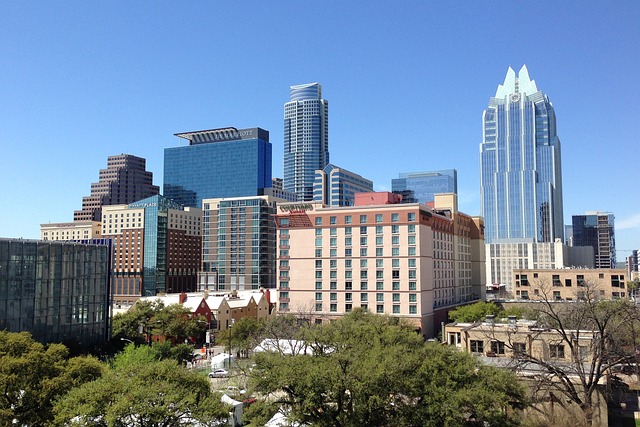
In Austin, Texas, a myriad of community hubs serve as vital touchpoints for residents seeking support and engagement. These centers are integral to the fabric of Austin TX, offering a range of services from social assistance to educational programs that cater to diverse communities within the city. The city’s dedication to fostering inclusivity is evident through these hubs, which provide resources such as job placement aid, health clinics, and recreational activities tailored to all ages. For instance, the Austin Public Library system extends beyond its physical branches with digital resources accessible online, including e-books, research databases, and learning courses for lifelong education. Similarly, the city’s Parks and Recreation Department manages numerous facilities that offer fitness classes, sports leagues, and community events, ensuring that residents stay active and engaged in their local environments. These hubs are not just places to access services but also spaces where Austin TX residents come together to build connections and strengthen community bonds.
Austin’s commitment to providing robust community support is further demonstrated through its collaborative approach involving both public and private entities. Non-profit organizations, volunteer groups, and local businesses partner with the city government to expand the reach of these resources. For example, the Capital Area Food Bank addresses food insecurity, while initiatives like “Austin Creative Alliance” encourage artistic expression and cultural programs. These efforts collectively form a comprehensive network of support that can be navigated by residents seeking to enhance their quality of life or connect with others who share similar interests or challenges. Whether through direct services or community-building activities, these Austin TX community hubs are integral in supporting the city’s population.
Neighborhood Support in Austin: Navigating Austin's Social Service Organizations

In Austin, Texas, a robust network of social service organizations stands ready to support residents in need. These entities offer a wide array of assistance, from financial aid to housing and health services. For instance, the city’s Capital Area Council of Governments provides resources that help individuals navigate available programs and connect with local community initiatives. Additionally, non-profits such as the United Way for Greater Austin and the Sunset Valley-based Community Action Partnership of Central Texas play pivotal roles in coordinating services and directing those in need to the appropriate support systems within the city. These organizations are instrumental in addressing issues like homelessness, food insecurity, and access to healthcare, thereby enhancing the quality of life for Austin’s diverse population.
For residents seeking assistance, it is beneficial to familiarize oneself with the specific services offered by these organizations. The City of Austin’s official website serves as a comprehensive hub for such information, listing available programs and contact details for direct support. Moreover, local community centers, like those found in neighborhoods such as East Austin and North Austin, often serve as access points for social services, offering guidance and assistance to navigate the various resources effectively. By leveraging these community-centered resources, Austin’s residents can find the help they need to overcome challenges and thrive.
Health and Wellness in the Heart of Texas: Austin's Medical and Mental Health Resources

In Austin, Texas, health and wellness are not just buzzwords but a priority for its vibrant community. The city boasts a robust network of medical and mental health resources designed to cater to the diverse needs of its residents. Austin’s healthcare system is characterized by a blend of cutting-edge facilities, specialized clinics, and community programs that work in tandem to ensure comprehensive care. Locals have access to an array of primary care providers, specialists, and hospitals, such as the esteemed Dell Medical Center and St. David’s Medical Center, which are equipped with state-of-the-art technology and staffed by experts dedicated to patient wellbeing. Beyond acute care, Austin also takes pride in its mental health services. The city is home to numerous counseling centers, psychiatric facilities, and support groups that address both common and complex psychological conditions. Initiatives like the Mobile Loaner Pool, which provides swimming lessons and water safety education, exemplify the city’s commitment to preventative care and holistic wellness. Additionally, programs like “Austin Trashes Inequality” demonstrate the city’s proactive approach in addressing public health issues through community engagement and environmental sustainability. These resources not only cater to immediate healthcare needs but also promote long-term health and wellbeing for all Austin residents.
Lifelong Learning Opportunities: Austin's Educational Programs and Libraries for Residents
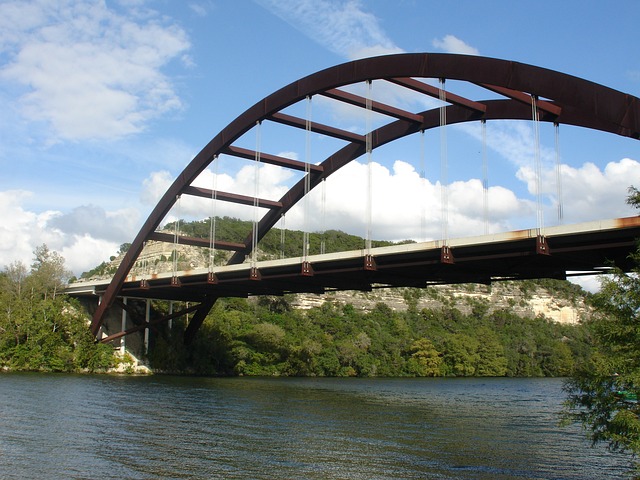
In Austin, Texas, lifelong learning is a cornerstone of community support and development. The city boasts an array of educational programs designed to cater to diverse interests and age groups. Austin’s commitment to continuous education manifests in its comprehensive libraries network, which serves as a hub for knowledge acquisition and cultural enrichment. These libraries offer extensive collections of books, digital resources, and multimedia materials, providing residents with opportunities to explore new subjects or delve deeper into areas of personal interest. Additionally, the city’s library system frequently hosts workshops, lectures, and events that stimulate intellectual curiosity and foster a culture of learning.
Austin’s educational institutions also play a pivotal role in promoting lifelong learning. The city is home to prestigious universities such as The University of Texas at Austin, which offers a plethora of public lectures, community courses, and continuing education programs. These academic offerings not only cater to those seeking to enhance their professional skills but also to individuals looking to pursue personal enrichment or academic pursuits outside the traditional classroom setting. Austin’s vibrant educational landscape ensures that residents have access to a wide spectrum of learning opportunities throughout their lives, making it an exemplary city for those who value education and intellectual growth.
Enriching Recreational Activities: Austin's Parks, Cultural Centers, and Community Events

In Austin, Texas, residents and visitors alike have access to a rich array of enriching recreational activities that cater to diverse interests and ages. The city’s numerous parks offer a respite from urban life, providing ample opportunities for outdoor enthusiasts to engage in sports, picnic, or simply enjoy the natural beauty that Austin boasts. Zilker Metropolitan Park, for instance, is a 351-acre haven along the Colorado River, featuring a botanical garden, a hillside theater, and a variety of trails suitable for biking, hiking, and kayaking. These green spaces serve as the backdrop for Austin’s vibrant community events, such as the annual South by Southwest (SXSW) festival, which draws attendees from around the globe to celebrate music, film, and interactive media.
Beyond the natural splendor, Austin’s cultural centers and museums enrich the city’s cultural landscape. The Blanton Museum of Art at The University of Texas at Austin houses an impressive collection of contemporary and modern art, while the Mexic-Arte Museum offers a deep dive into Mexican and Latino art and culture. The city’s cultural centers also host exhibitions, workshops, and performances that reflect Austin’s rich cultural heritage and foster community engagement. These venues are integral to Austin TX’s identity as a creative and innovative hub, providing residents with spaces to explore, learn, and connect, thus contributing to the overall well-being and enrichment of the community.
Austin residents have a robust network of community resources and services at their fingertips, with offerings ranging from health and wellness support to educational enrichment and vibrant cultural activities. This comprehensive guide has highlighted the pivotal role these hubs play in fostering a strong, interconnected community within the bustling heart of Texas. Whether seeking assistance, engaging in lifelong learning, or enjoying recreational pursuits, Austin’s residents can take advantage of the diverse programs and facilities available to them. These local assets are instrumental in enhancing the quality of life for all who call this city home, ensuring that Austin remains a dynamic and supportive community for years to come.
